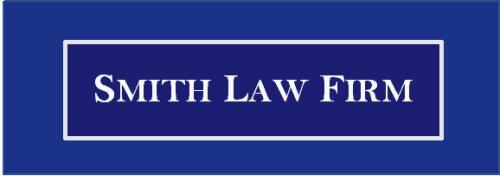Best Mortgage Lawyers in Toronto
Share your needs with us, get contacted by law firms.
Free. Takes 2 min.
Free Guide to Hiring a Real Estate Lawyer
List of the best lawyers in Toronto, Canada
About Mortgage Law in Toronto, Canada
Mortgage law in Toronto, Canada governs the legal aspects of borrowing money to finance the purchase of property. It is essential to understand the rights and obligations associated with a mortgage to protect your interests. Whether you are a first-time homebuyer or a seasoned investor, having a solid understanding of mortgage law is important.
Why You May Need a Lawyer
There are several situations where you may need legal help in the field of mortgage. Some common examples include:
- Reviewing mortgage agreements to ensure your interests are protected
- Negotiating mortgage terms with lenders
- Resolving disputes with mortgage lenders or borrowers
- Navigating foreclosure proceedings
- Seeking advice on mortgage refinancing or restructuring
Local Laws Overview
When dealing with mortgages in Toronto, Canada, it is important to be aware of several key aspects of the local laws, including:
- Toronto real estate laws and regulations
- Provincial laws governing mortgages and property transactions
- Consumer protection laws
- Foreclosure laws and processes
- Regulations specific to mortgage lenders and brokers
Frequently Asked Questions
Q: What is the minimum down payment required for a mortgage in Toronto?
A: In most cases, the minimum down payment required is 5% of the purchase price for homes valued up to $500,000. For homes valued between $500,000 and $1 million, the minimum down payment is 5% of the first $500,000 and 10% of the remaining amount.
Q: What is mortgage default insurance?
A: Mortgage default insurance, also known as CMHC insurance, is required for homebuyers who have a down payment of less than 20%. This insurance protects the lender in case the borrower defaults on their mortgage payments.
Q: Can I negotiate the terms of my mortgage with the lender?
A: Yes, you can negotiate certain terms of your mortgage with the lender, such as the interest rate, repayment schedule, prepayment penalties, and more. It is advisable to seek legal advice before entering into any negotiations.
Q: What are the potential consequences of mortgage default?
A: If you default on your mortgage payments, the lender may initiate foreclosure proceedings, which could result in the sale of your property to recover the outstanding debt. This can have serious implications for your credit and future ability to obtain loans.
Q: When should I consider refinancing my mortgage?
A: Refinancing your mortgage may be a good option if you want to secure a lower interest rate, consolidate debts, access equity in your home, or change the terms of your loan. Consulting with a lawyer can help you evaluate whether refinancing is the right decision for you.
Additional Resources
If you need further legal advice or information regarding mortgages, consider reaching out to the following resources:
- Ontario Bar Association - https://www.oba.org/
- Canada Mortgage and Housing Corporation - https://www.cmhc-schl.gc.ca/en/
- Real Estate Lawyers Association of Ontario - https://www.realproperty.ca/
Next Steps
If you require legal assistance for mortgage-related matters, it is advisable to consult with a qualified and experienced lawyer specializing in mortgage law. They can provide personalized advice and guide you through the process to ensure your rights and interests are protected.
Lawzana helps you find the best lawyers and law firms in Toronto through a curated and pre-screened list of qualified legal professionals. Our platform offers rankings and detailed profiles of attorneys and law firms, allowing you to compare based on practice areas, including Mortgage, experience, and client feedback.
Each profile includes a description of the firm's areas of practice, client reviews, team members and partners, year of establishment, spoken languages, office locations, contact information, social media presence, and any published articles or resources. Most firms on our platform speak English and are experienced in both local and international legal matters.
Get a quote from top-rated law firms in Toronto, Canada — quickly, securely, and without unnecessary hassle.
Disclaimer:
The information provided on this page is for general informational purposes only and does not constitute legal advice. While we strive to ensure the accuracy and relevance of the content, legal information may change over time, and interpretations of the law can vary. You should always consult with a qualified legal professional for advice specific to your situation.
We disclaim all liability for actions taken or not taken based on the content of this page. If you believe any information is incorrect or outdated, please contact us, and we will review and update it where appropriate.















